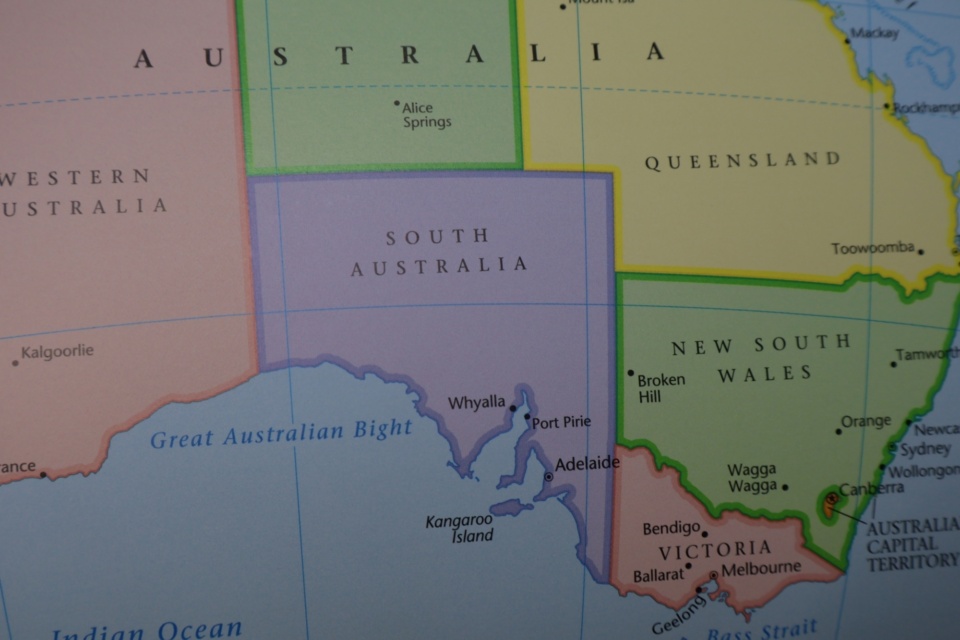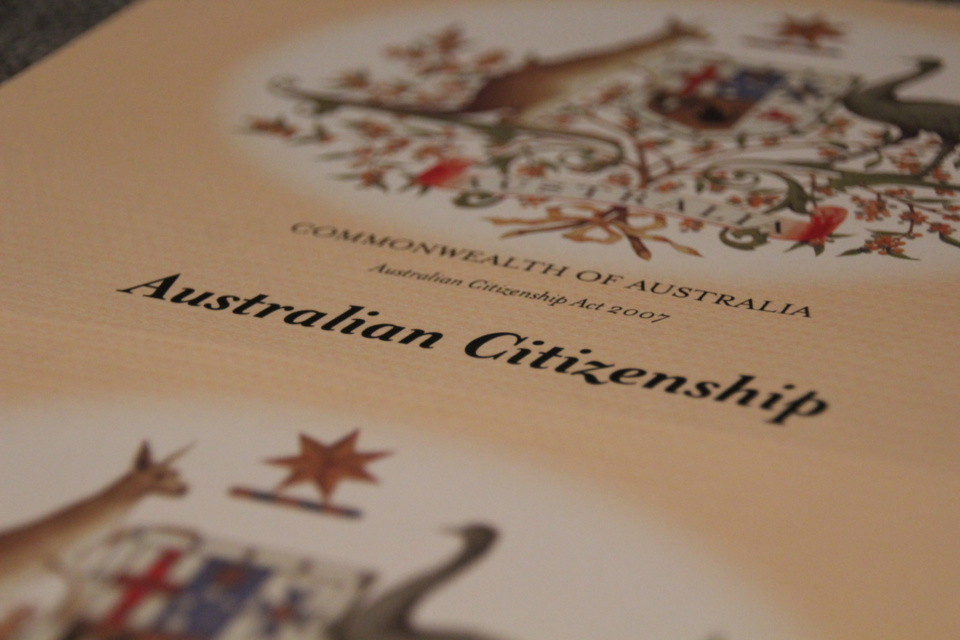
One Nation’s chances as a dominant conservative party are piñata-like
Posted on 11 Feb 2026
Opinions polls insist Pauline Hanson's fortunes are on the rise, but it is likely that enthusiasm…
Posted on 03 Sep 2024
By David Crosbie

If charities are to achieve their full potential, Australia must invest significant additional resources into better training, supporting, paying and understanding the sector's current and future employees, says Community Council for Australia CEO David Crosbie.
In his book Start with Why, author Simon Sinek wrote,“When people are financially invested, they want a return. When people are emotionally invested, they want to contribute.”
But there are any number of studies, books and considered opinions about how important staff are to the performance of any organisation.
It is beyond contention.
This is especially true in charities, where the work is often difficult, even confronting, and the challenge of engagement with communities is typically critical to the success of the organisation.
In my experience, many people choose to work in the charities and community sector not for the financial return, but because they want to do something of value through their work.
When staff feel valued and can see how their work contributes to making a difference, they are more likely to stay and commit to achieving organisational goals.
This doesn’t mean terms and conditions don’t matter – they do. But it may mean we have to work a little harder in our sector to show how our work connects to real outcomes that benefit our communities.
It would be good to be able to talk with some authority about the charities and community organisation workforce in Australia, but that would require an understanding of who our workers are and how they approach their roles.
Unfortunately, we don’t know much about staff and volunteers across our whole sector, although we do have some big-picture numbers that I think are worth noting.
According to the annual information statements provided by charities to the Australian Charities and Not-for-profits Commission for 2022, 1,468,969 people were employed in the charities sector, and there were 3,497,117 volunteers.
This is about 10.5% of Australia’s total workforce.
Most staff are employed in charities that have multiple purposes, followed by those in education, those involved in group reporting (churches and others), and Public Benevolent Institutions.
The highest number of staff are employed in a small group of 258 extra-large charities (each with annual income more of than $100 million) that together employ 695,000 people. Their average number of staff is around 2,700.
The 2,289 large charities (those with income of more than $10 million) employ 481,000 staff and have an average employee count of 210.
The almost 7,000 large Australian charities (income more than $1 million) employ 208,000 staff and have an average employee count of 30.
The remaining charities – all with income below $1 million – employ fewer than 30,000 staff between them, despite making up 74% of all charities in Australia.
It’s also important to note that most charity employees in Australia are either part-time or casual.
Out of the total 1,468,969 employees, only 561,610 are full-time, 543,782 are part time, and 363,577 are casual.
According to Australian Bureau of Statistics data, about 20% of all employees in Australia are casual. In our sector that proportion is higher at more than 25%.
ABS data suggests total part-time employment is about 30% of all employment in Australia. In our sector part-time employment is more than 37%.
The bottom line is that employment in Australian charities is less secure, more temporary, and less sustainable.
This employment data shows that staff employed in the charities sector in Australia are more likely to be working on casual or part-time arrangements than those in other sectors.
The data also highlights part of the fundamental story for many charities in Australia.
An organisation that has short-term or insecure funding will have a diminished capacity to offer ongoing staff positions, which is why the charities sector has more than 10% fewer full-time employees.

The lack of ongoing stable consistent income streams is compounded by limitations on the capacity of charities to manage risk using financial products such as lines of credit that are more readily available to for-profit organisations.
Debt financing to spread risk over a longer period and cover temporary shortfalls in income is exceedingly rare in Australian charities.
The bottom line is that employment in Australian charities is less secure, more temporary, and less sustainable. Our workforce is paying the price for short-term contracts, lack of funding certainty, and not paying what it takes to meet funding deliverables, including properly developing, remunerating and supporting our staff.
Imagine Canada, which is a peak body for the sector in that nation, drew on data from multiple sources including Statistics Canada to better understand the not-for-profit sector workforce there.
The findings of its report – Diversity Is Our Strength – demonstrated what the Canadian sector suspected but had not previously had the data to prove:
"77% of nonprofit workers are women, 47% immigrants and 35% Indigenous and racialized people. These workers tend to be older and better educated than the economy-wide averages but face lower salaries and more difficult employment conditions."
The report proved so useful in building the case to better value and improve support and working conditions for Canadian not-for-profit employees that it is now being updated and republished with the latest data.
In most industries, forward planning for workforce needs is a fundamental part of maintaining and strengthening the industry.
Australian charities are seen as a subset of some industries, but there is extremely limited collective knowledge about our workforce, who the workers are, their qualifications, their employment conditions, their future aspirations, their likely career trajectory, and the training and development they may need.
We know how critical the work of charities and not-for-profits is to governments and communities. We also know our staff will have to deal with increasing challenges from climate change, emerging technologies, and growing inequality.
If we are to plan for a sustainable future and to increase the contribution charities can make to Australia, we will need to invest significant additional resources into better training, supporting, paying and understanding our current and future employees.
David Crosbie has been CEO of the Community Council for Australia for the past decade and has spent more than a quarter of a century leading significant not-for-profit organisations, including the Mental Health Council of Australia, the Alcohol and Other Drugs Council of Australia, and Odyssey House Victoria.
We're proud to take a stand on progressive issues. Here's a taste of our commentary.

Posted on 11 Feb 2026
Opinions polls insist Pauline Hanson's fortunes are on the rise, but it is likely that enthusiasm…

Posted on 28 Jan 2026
This year’s Adelaide Writers’ Week began with the cancellation of a talk by Palestinian-Australian…

Posted on 17 Dec 2025
Posturing by the US president about Europe's immigration policies, even warnings of future…

Posted on 03 Dec 2025
If you wanted an example of the problems inherent in federal systems, you couldn’t do better than…

Posted on 19 Nov 2025
When it comes to loyalty to car brands, it can be confusing who we should support, and, even more…

Posted on 05 Nov 2025
Before the Prime Minister gets too excited about his recent meeting with the American President, he…

Posted on 14 Oct 2025
The idea of "long term" is not something that sits well in the social media era, yet governments…

Posted on 30 Sep 2025
I am proud of what Our Community, and its exceptional team, have achieved in the past 25 years. As…

Posted on 16 Sep 2025
Happy Australian Citizenship Day! To mark the occasion, Our Community leader Denis Moriarty takes…

Posted on 02 Sep 2025
Words live, evolve, and sometimes die. Some words are invented from scratch, some are old words…

Posted on 26 Aug 2025
The cost of the National Disability Insurance Scheme (NDIS) is climbing relentlessly – $44 billion…

Posted on 04 Aug 2025
The new leader of the Liberal Party, Sussan Ley, wants to increase the proportion of women…